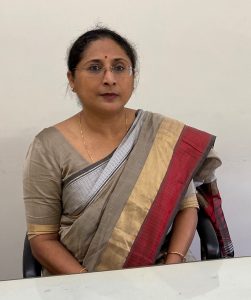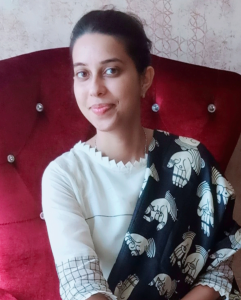In an exclusive interview, Team TDB talks with Educationist and Principal of Jasudben M L School and Bloomingdales Pre-Primary, Mrs. Damayanti Bhattacharya, about the current educational landscape and challenges that educators are faced with against the backdrop of the pandemic.
–Special Correspondent, Education: Swati Kamboj, Team TDB
- It may be still too early to call this the post-pandemic era. We may be speaking too soon. Consequently, how has the constant shift between offline and online modes of education impacted your students? Has it affected the student’s psyche in the first place? Are kids happy with coming back to school?
The offline school has saddened them. It has definitely affected their psyche; they are suffering from ‘Covid- lethargy’ and have lost the ability to concentrate in class and their alertness has gone down. They have slowed down as far as their written work is concerned and are unable to complete their written assignments on time.
As far as teachers are concerned, they are still trying to grapple with the gaps in learning and to plug those before they can move on to teaching new things. Children are very happy to come back to school, play with their friends and slowly creep back into the routine of everyday life.
- Here’s an interesting question: How will you keep the kids away from their devices including smartphones and laptops if face to face classes find their way back into our daily lives. Is there a sense of separation anxiety in kids being away from their devices? Is it a struggle to get the kids to sit in class continuously and hold their focus and attention at a stretch?
There is no sense of anxiety in the children as they still have their afternoons and evenings as their school hours are shorter temporarily. They still meet their friends etc so they don’t miss their gadgets.
Students are not allowed to bring their smartphones and laptops to school when they come for their offline classes so there is no issue of keeping them away from their devices.
With the younger children, it is a bit of an issue because they were given off-screen time between classes so they are finding it difficult to sit continuously through 35-minute periods. But the older children are quite comfortable and eager to continue with the offline classes.
- Tell us more about:
1) the current admission processes
2) how the exams are conducted in the current scenario
For admissions parents fill out the admission form online, testing and observations are done in school and interviews of the parents are taken online.
Exams are now offline. When the hybrid classes were on there was 50% attendance in a class, half the students would attend on one day and the other half on another day. Teachers had made two sets of papers for each class so that everybody could write their tests offline.
- Against the backdrop of the pandemic, did the school take any measures to address the well-being of the staff, both mental and physical?
Yes – The management ensured that all the staff both teaching and non-teaching were vaccinated.
The councillors were available to the teachers and parents at all points of time either on zoom or physically whenever for counselling.
- What are your thoughts about a hybrid model of imparting education? Is it the way forward? If not the hybrid model, what’s the way forward for the school?
The pandemic has forced us to re-think our classroom teaching strategies. I believe that teaching online is certainly something that can be considered seriously for older children but in schools where numbers are large ensuring that every child gets equal attention is very difficult, so for a smaller group of children, it may work if the child is sincere and mature enough to make the best of the situation. However, for younger children, offline classes are certainly the better choice. But in rural areas, if one could ensure better connectivity, online education would benefit many more children in the country.
- How did the school cater to the holistic development of students during the time that education was online?
During the pandemic, we tried our best to replicate the offline experience for the children as much as it was possible by having online sports, STEM exhibitions, Art exhibitions, Dance and Elocution Competitions, the celebration of festivals, virtual field trips, the annual play and performances by the children etc. We also had the parents participate in these activities to ensure greater involvement of the family. Besides this frequent interaction with parents, was held online to ensure that each parent could speak to the teachers and the teachers could reach out to the parents periodically. Regular department and staff meetings ensured that the staff members could share their experiences with others, clarify any doubts they had and collectively decide on changes that would enhance the teaching-learning experience.
So, though we were functioning in our own homes there was constant communication among the stakeholders of the school.
About Mrs. Damayanti Bhattacharya
 Damayanti Bhattacharya is a veteran educator with an experience of over 30 years in the field of education. A qualified Master of English Literature from Calcutta University, Damayanti Bhattacharya also holds a B. Ed degree, is an AP certified teacher as well as an IGCSE certified teacher for Global Perspectives. She taught briefly in 2 schools in Gujarat where she lived for a few years, and after that she came to Mumbai to further pursue her goal of imparting holistic education in 1994. Ever since then, she has been striving to bring out the importance of character building and overall personality development of the students.
Damayanti Bhattacharya is a veteran educator with an experience of over 30 years in the field of education. A qualified Master of English Literature from Calcutta University, Damayanti Bhattacharya also holds a B. Ed degree, is an AP certified teacher as well as an IGCSE certified teacher for Global Perspectives. She taught briefly in 2 schools in Gujarat where she lived for a few years, and after that she came to Mumbai to further pursue her goal of imparting holistic education in 1994. Ever since then, she has been striving to bring out the importance of character building and overall personality development of the students.
In Mumbai, her first stint was with JML School which lasted 3 years following which she joined The Cathedral & John Connon Middle School, and was a part of the reputed institution for 22 years during which she essayed roles of English HOD and then Headmistress. She was also the first in India to introduce an innovation hub to promote practical learning experiences. She strongly believes that children are like clay and teachers are potters. The duty of the potter is to fashion the clay with love and care, to create a strong and most exquisite piece of art.
Damayanti Bhattacharya keeps herself abreast of the ‘National Education Policy’ and the ever-evolving sphere of education via workshops and leadership courses. Her vision is to ignite and nurture the spirit of inquiry in young leaders and she passionately follows the motto that knowledge is adorned by character. Through the course of her professional journey as a resilient educator, her mission has been to:
- Build an ecosystem which promotes thinking and learning by providing excellent curricular and co-curricular programs.
- Continuously upgrade teaching skills through ongoing training programs for teachers ● Inculcate amongst its students, a relevant value system.
- Be in all things contemporary
Damayanti Bhattacharya has been bestowed with the Iconic Leadership Award by the Governor for imparting the most advanced knowledge and education to the children without departing from the core Indian values. She believes that JML School and Bloomingdales Pre-Primary has offered her a remarkable learning curve, making it an enriching experience that is certain to help her mentor children and shape lives in a better manner.
About the Author: Swati Kamboj, Special Correspondent, Education




















